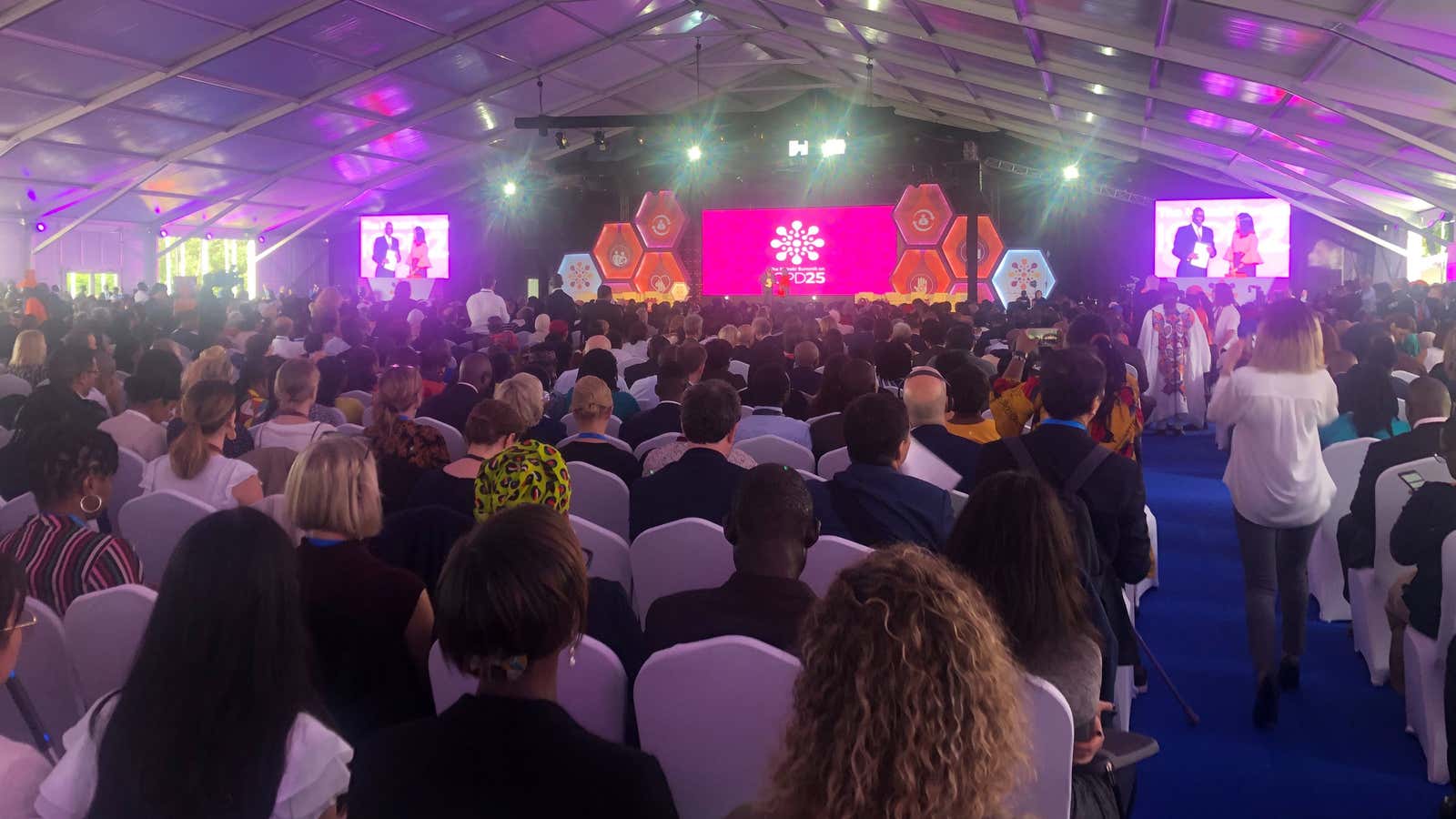The road that led to this week’s International Conference on Population and Development in Nairobi, the world’s largest and most important meeting on reproductive health, started in Cairo 25 years ago. The Cairo summit was at the time unprecedented.
“It changed the way we look at population development,” said Sarah Craven, a UN Population Fund executive in Washington, DC.
Until then, she said, the conversation about reproductive health in the context of development had been focused on so-called “population control,” essentially consisting of government programs imposed top-down to pursue demographic objectives. These programs were united in their lack of concern for the rights of the individual. They ranged from Romania’s pursuit of population growth through a ban on contraception—which left abortion as the only way to avoid unwanted pregnancies—to China’s one-child policy.
“What came out from Cairo is that coercion never works,” Craven said. After the conference, attended by 20,000 people, the focus shifted to individual empowerment. Participants resolved to give people—particularly women—access to education and sexual and reproductive rights.
The plan of action that was agreed to at that original meeting, which has guided the UN Population Fund’s programs for two decades, was ambitious. It contained measurable commitments. It was the first time reproductive rights were officially included in a UN document. But now, five years after the deadlines they originally set, the majority of the goals have not been met.
And so the actors have convened again to acknowledge the “unfinished work” and set new goals. The tone of the Nairobi conference is enthusiastic. In quintessential UN and international development culture, attendees are celebrating announcements as if they were achievements.
But there are some who are growing tired of this pattern. Among them perhaps the most vocal has been Lina Abirafeh, who leads the Arab Institute for Women at the Lebanese American University.
Abirafeh was moved to join the movement for reproductive and sexual health, as well as gender equality, as a young woman following the conference in Cairo, and has been working on it ever since. But, 25 years after Cairo, she has no patience left. On the opening day of the summit in Nairobi earlier this week, in a panel with, among others, Melinda Gates and reproductive health advocate Gita Sen, Abirafeh said there is no need for another women’s rights conference: “women are dying while we are still talking.”
With an estimated 230 million women still unable to get contraceptive, and a third of women, globally, victims of gender-based violence, even in the wealthiest countries, and 800 women dying every day from preventable causes, the reality for girls and women isn’t anywhere close to the goal that was set for 2030, let alone the one originally set for 2015. “Where we are now I find unacceptable,” Abirafeh said on stage. “We need to push back more angrily.”
There are so many events on women’s rights going on, Abirafeh later told Quartz, that the feeling is they have just become avenues for a community to talk to each other. Women Deliver, the Sexual Violence Research Initiative Forum, the 25th anniversary of the Beijing Convention on Women, the International Conference on Family Planning: These are only some of the events that will take place between this year and 2021. And these are only the international ones. Large, high-profile gatherings to discuss gender inequality have become the staple of agendas for both the poor and the rich, yet true gender equality is still thought to be generations away, even in countries with smaller gender gaps.
Clearly, something isn’t working. “I wonder: how many more events do we need to have? How many times do we need to get together and talk about girls and women’s rights, when we actually just need to deliver on it?” Abirafeh asked. “It’s 25 years from Cairo and here we are talking about unfulfilled promises; unfulfilled promises are broken promises. We are letting down millions of women and girls around the world.”
Abirafeh says that while it’s important to rekindle and galvanize the network working for women’s rights, there is little use in continuing the discussion of human rights violations that happen at the expense of women. The world, especially women, she said, is aware of it. The world instead needs to properly plan and fund actions to intervene.
‘The campaign to convince people of the validity of our cause should not be what we focus on,” Abirafeh said. “We need to discuss how, not if or when—when is now, when was 25 years ago,” she says.
The organizers of the conference—the governments of Kenya and Denmark, and the UN Population Fund—are aware of the skepticism, but say while the progress hasn’t met the standards that were set, it has still been significant. As examples they point to the fact that there are now 40% fewer maternal deaths, and countries such as Kenya or Uganda are well on their way to completely eradicating female genital mutilation (for Kenya, the deadline is 2022).
The organizers also maintain the Nairobi summit is not just another women’s rights conference. “What makes this summit so unique is that there is no mandate, countries are coming of their own will,” UN Population Fund spokesperson Arthur Erken told Quartz, noting that this is not a gathering convened by the UN General Assembly and, as such, it is optional. Denmark’s special envoy Ib Peterson said the commitments—so far, over 1,250—aren’t made just by governments, but by nonprofits and private organizations, too, and for the first time they are all published online, making it easier to demand accountability for them.
“Let Nairobi be where we stopped talking, and started taking action,” UN Population Fund executive director Natalia Kanem said in her closing remarks today. Still, Abirafeh’s fighting wish seems like a stronger way to approach it: “I hope this is the last time that we meet to talk about women’s rights,” she said. “I don’t want to go to ICPD50.”
